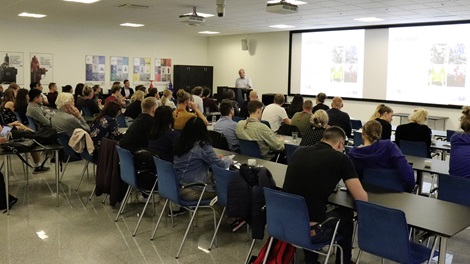
Knowledge sharing is our best defense against climate change
Thinking outside the box is not always necessary; when we already have solid, well-proven technologies at hand, we need to focus more on putting them into play. 26-03-2020
On World Water Day, March 22nd, the UN published a new report: The United Nations World Water Development Report 2020. The report draws a gloomy picture of the climate and our future.
As the planet warms, water has become one of the main ways in which we experience the changing climate. Yet, water is rarely brought up in the climate debate or in the international climate agreements, even though it plays a significant role in issues such as food security, production of energy, poverty reduction and economic development.
This falls into line with our strong opinion that water deserves a lot more attention on the global climate agenda; including the debates on energy production and health in general. Water is the source to all life and development on the planet, and wise management can have immense impact on how we address the 17 UN goals on sustainable development.
We need to spread the word about existing technologies
The report states that, even though we need to focus on research and development, it is just as important to implement the already known and well-proven technologies. There are plenty to choose from, and with sufficient awareness and education, this is the way we can - and should - change our path.
80% of all human-induced wastewater is discharged directly into nature without any prior treatment. This should be collected, treated, and the remaining sludge should be utilised for energy production. If the treated water can then be discharged into a nearby area, expenses can be cut on the energy bill. Discharging into a nearby area can create a constructed wetland contributing with biodiversity and recreative areas. Through controlled seeping to the groundwater, cities are not in danger of sinking due to overexploited groundwater reserves, which is an issue many larger cities are dealing with today.


Introducing known technology will only happen through more awareness, proper education and through initiatives such as capacity programs. Our Summer school, which runs under the name “Advanced Water Cycle Management Course”, is our contribution in this area. With the latest knowledge at hand, and with a holistic approach to water’s entire journey throughout society, we focus on obtaining the most efficient supply and treatment processes. Learn more about our summer school here. Note: Due to COVID-19 concerns, this year's course has been cancelled.
Climate change affects water management worldwide
Water and climate are also inseparably linked. While better management can help reduce carbon emissions, climate too has an immense impact on water and wastewater handling. Drought speaks for itself, while flooding has a damaging effect on pipelines and water infrastructure in general. Extreme rain creates overflow from sever pipes, creating pollution and poses severe health risks.
Finally, the report states that water resource management is currently vastly underfinanced and in need of much greater attention from governments worldwide.
Want to learn more? Read the full version of the article on www.avkvalves.com

